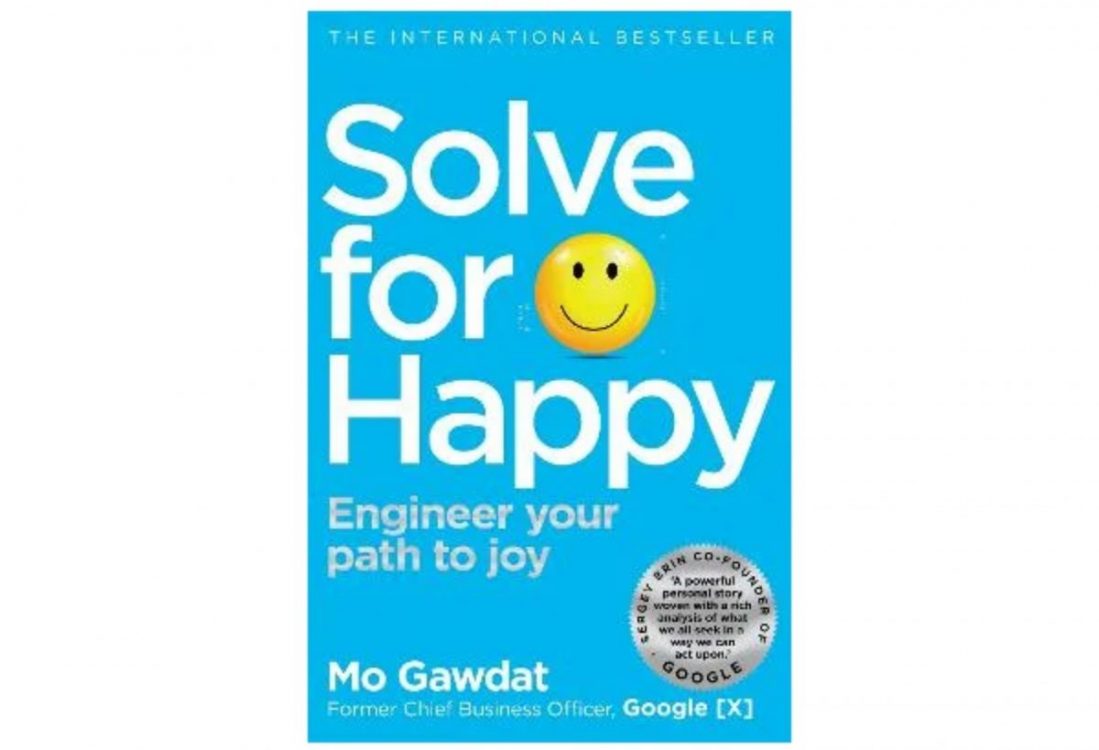Discover your happiness formula

What is happiness? Why are we always looking for happiness? Why are there so many films and books dedicated to happiness? Mo Gawdat, a renowned Egyptian entrepreneur and author delves into what happiness is and how to find it in his book Solve for Happiness.
The former Google X Chief Business Officer was at the prime of his career —a career that many others would kill for, and a devoted family. And yet, despite all, he wasn’t fulfilled. Why? Gawdat struggled with this issue for years, just like many others before him, and it intensified after he tragically lost his 21-year-old son in 2014 during an ordinary hospital operation.
This drove him on a mission to learn what true pleasure is and how to avoid disappointment in life. Gawdat finally discovered his happiness formula by applying his analytical thinking to the issue and analysing fundamental concepts from many different world faiths. In this book, he shares his pursuit of happiness and the lessons he learned along the way.
Chief among them is that happiness can be our default state if we exercise the muscle concerned with it. “Your happiness is equal to or greater than your perception of events minus your expectations of life,” he says. This means that when you regard life’s events as the same or better than your expectations, then you’ll be happy because the twists and turns of life don’t frustrate you. But if your expectations are greater than the reality, they’ll subtract from your capacity for happiness. Your thoughts determine your happiness, they can either prolong or end your suffering.
One of the key takeouts from the book is that your thoughts manifest as the voice in your head. You, however, are not the voice in your head, but the observer of your life. The voice in your head – the one that questions your actions and intentions – is not the real you. The voice in your head is your brain talking to you as it tries to understand the world around you and make the best possible decisions. But it isn’t you.
So when listening to your negative thoughts, remember that rather than being what you feel, they’re just the brain throwing out possibilities as it tries to understand the world. And here’s the thing – you don’t have to listen. Instead, try to minimise the chatter in your head. If you spend more time recognising when it’s there, you can start to push back – swapping your negative thoughts for positive ones! Of course, there are more lessons in the book, but you will have to get all the helpful tidbits yourself. I have, however, plugged you into what stood out most for me, which means that my work for the week is done. Stay happy folks!












